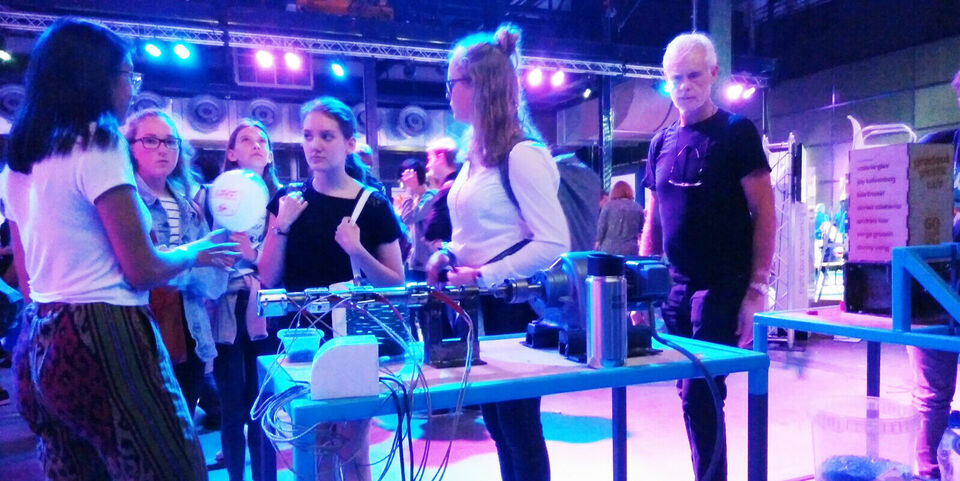Night of the Nerds as springboard to Mind the Step
In the dimly lit Klok building on Tuesday the Night of the Nerds was held during Dutch Technology Week. The aim is to enthuse mainly high school pupils for engineering and technology, which may explain the disco ambiance. There are many Brabant companies and just a handful of student teams. From TU/e, University Racing Eindhoven (URE) and team Precious Plastics TU/e are present. Cursor visited the plastic recyclers.
“What we find striking is that the adults who are here to supervise are showing more interest in our project than the high school pupils. They move on more quickly to the Escape Room, the VR headsets or the games. But we get that. Having adults appreciate that we have made these machines to recycle plastic is nice in itself,” says Andrea Low. Last year, as a first-year student of Industrial Design, she got to know Valerie Gies, who was itching “to get to work on something practical alongside the study”.
“I could have joined an existing student team, but I preferred to set up something myself,” says Gies. Together with five fellow students on her program, and following in the footsteps of the Eindhoven designer Dave Hakkens, she decided to experiment with plastics recycling and creating new plastic objects. They have already made two machines that do this and are showing them here in the Klok building.
The self-made ‘Shredder’ and the ‘Extruder’ usually stand in Gemini Noord -1.63. “We think it would be cool if other students started working with them. They can once they've agreed things with us. Using the shredder, collected plastic bottles and lids can be ground into granulate. The extruder can take this and produce a thread that can be shaped or sprayed into an a mold.” As an important secondary aim, team Precious Plastics TU/e hopes to inspire others to do something practical alongside the theoretical study.
Gies tells us how much she is learning from this project. “Through trial and error you find out everything that is involved when you set up something new. I now accept better than I did at the start that things don't work right away or are perfect. None of us is an experienced machine builder and yet our two machines are standing here now. I am proud of that.”
PP (yoghurt pots and drinking straws), LDPE (bags) and HDPE (shampoo bottles) are suitable because they melt easily without any risk of burning and no toxic substances are released. “Which makes them more pleasant materials for us to work with,” says Gies.
The next step for the team is to make the ‘Compression’ and the ‘Injection’. The former heats granulate in an oven of sorts, the latter uses manual power to press the warm material into a mold. For now it is “really cool” to be standing in the Klok building, thinks Low. “Isn't it the dream of every ID student to soon be showing their work in the Mind the Step exhibition at DDW? I see this as a practice run.”




Discussion